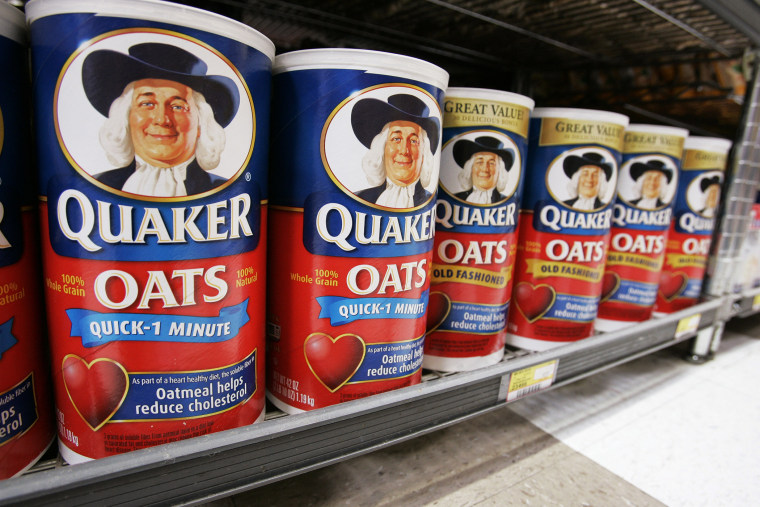Talk about a sticky situation. Plaintiffs claiming to be the heirs of "the real Aunt Jemima" are suing the Quaker Oats Company for $2 billion and a share of future sales revenue.
Two great-grandsons of Anna S. Harrington say that Quaker Oats and other companies "made false promises" to their great-grandmother, as well as other black women whose voices, likenesses and recipes were used to promote the breakfast food brand. Quaker Oats first registered the Aunt Jemima trademark in 1937.
Based in Chicago where the federal suit was filed, Quaker Oats maintains that there was no real Aunt Jemima, saying in a statement, "The image symbolizes a sense of caring, warmth, hospitality and comfort, and is neither based on, nor meant to depict any one person."
According to the plaintiffs, however, Quaker Oats recruited Harrington to become Aunt Jemima in 1935. Though contracts between Harrington and Quaker have not been located, the plaintiffs contend that their great-grandmother lacked the education to bargain fairly with the company, and that she shouldn't be unfairly punished as a result.
Attorney Don Cox of Louisville, Kentucky, believes that an expired statute of limitations will bar the plaintiffs from recovering money damages, adding that Harrington's lack of bargaining ability will likely not factor into a judge's decision.
The Jim Crow Museum of Racist Memorabilia at Ferris State University in Big Rapids, Michigan, lists Aunt Jemima among "anti-black imagery," explaining that her image was used to romanticize the Jim Crow South "as a happy place for blacks and whites."
In an email to the Courier-Journal, D.W. Hunter, one of Harrington's great-grandsons who is a plaintiff to the case, said that if he does prevail in court, he will "buy the agricultural crops from disenfranchised African women farmers that are in villages to help them make a decent living wage in Africa and Brazil."
